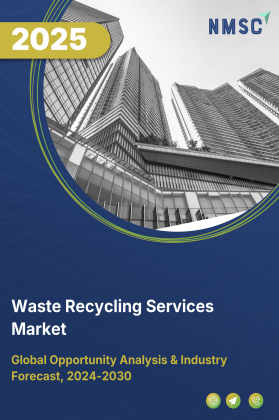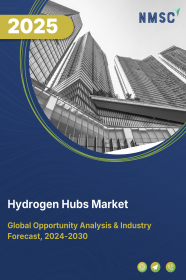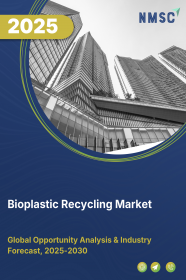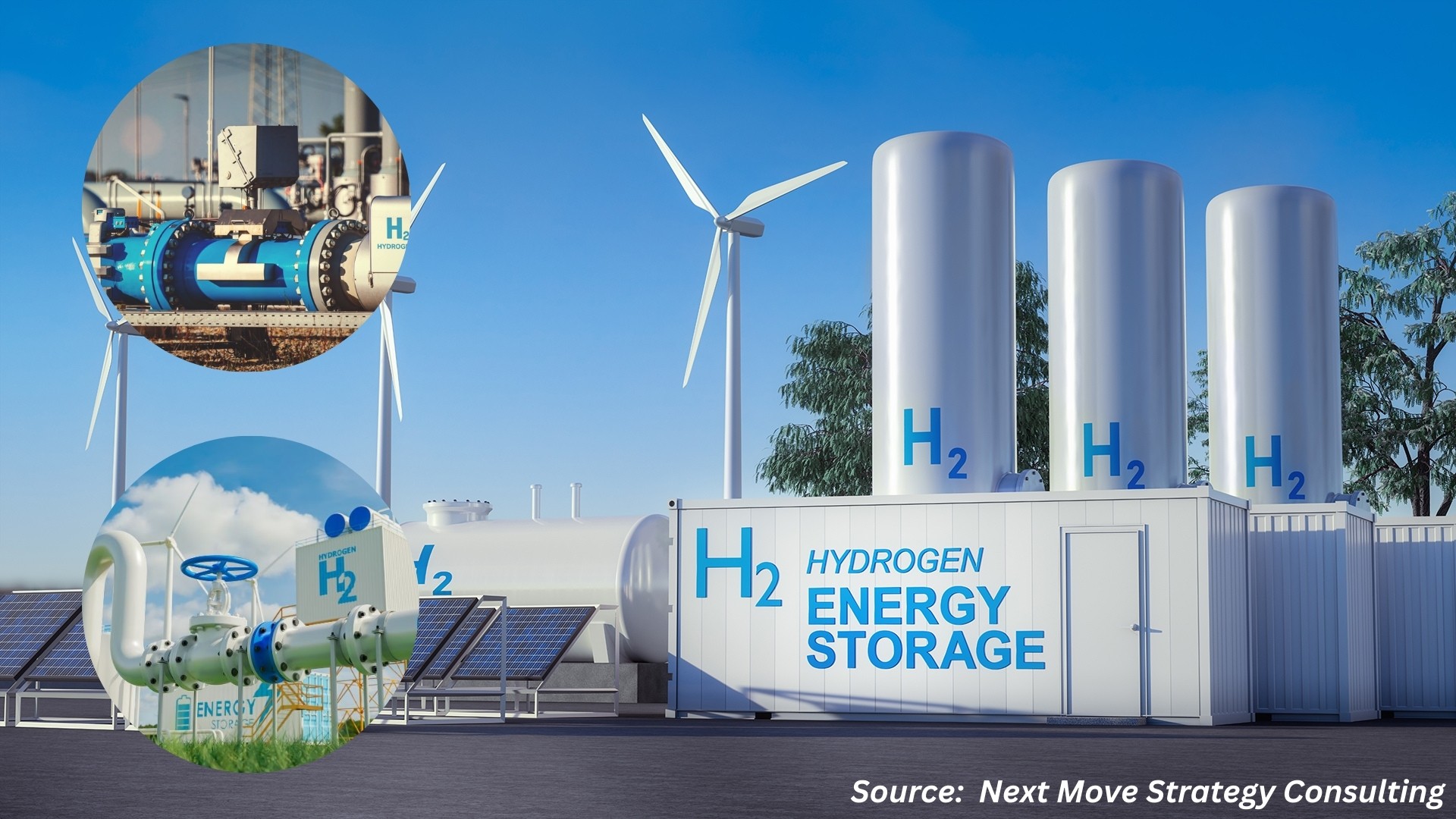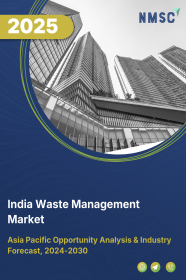
India Waste Management Market by Waste Type(Hazardous Waste, and Non-Hazardous Waste), by Service(Collection, and Disposal), by Source(Residential or Municipal Waste, Commercial Waste, and Industrial Waste) – Opportunity Analysis and Industry Forecast, 2024–2030
Industry: Energy & Power | Publish Date: 07-Oct-2025 | No of Pages: 134 | No. of Tables: 166 | No. of Figures: 111 | Format: PDF | Report Code : EP1250
India Waste Management Market Overview
India Waste Management Market size was valued at USD 22.17 billion in 2023, and is predicted to reach USD 54.20 billion by 2030, at a CAGR of 12.5% from 2024 to 2030.
The India waste management market involves a wide range of services and activities aimed at managing and mitigating the impact of waste generated by various sectors including residential, commercial, industrial, and healthcare. It includes the collection, transportation, processing, recycling, and disposal of waste materials in a manner that is environmentally responsible and sustainable.
The market also involves the development and implementation of technologies and practices that promote waste reduction, resource recovery, and the safe handling of hazardous materials.
Key components of the waste management market include waste collection services, recycling facilities, waste-to-energy plants, landfill operations, and environmental consulting services. As awareness of environmental issues grows, the waste management market continues to expand, driven by growing population, technological advancements, and increasing public demand for sustainable waste solutions.
Legally Enforceable C&D Waste Recycling Under New EPR Rules Strengthens Infrastructure Investment
The Environment (Construction & Demolition) Waste Management Rules 2025 mandate that large construction projects must recycle and reuse a growing percentage of C&D waste through an Extended Producer Responsibility framework. By 2028–29, producers will be required to achieve near 100% recycling and must register and report via a central portal managed by the Central Pollution Control Board. This clear, binding mechanism shifts accountability to waste generators and incentivizes investment in both centralized and in-situ C&D processing facilities, spurring uptake of crushers, sorting lines, and reuse-oriented construction technologies.
Rapid Digitalisation & Industry Focus on Circularity Fuel Smart Waste Innovations
India’s waste sector is rapidly embracing digital and IoT solutions—including smart bins, GPS-tracked collection fleets, and AI-powered monitoring—as operators strive for efficiency, transparency, and regulatory compliance. Additionally, a government-backed push toward circular economy principles through plastic and e-waste rules, Swachh Bharat initiatives, and upcoming national Resource Efficiency frameworks is expanding e-waste collection and recycling platforms. This dual momentum is generating demand for tech-driven community composting hubs, modular recycling units, and smart industrial recovery chains—driving both infrastructure growth and sustainable service models.
Plastic Recycling Deficit Hinders Progress Toward Eu-level Compliance
India is struggling to meet EU-equivalent recycling targets, particularly the 55% municipal waste recycling goal. Plastic waste—especially multilayer and packaging types—remains significantly under-recycled, with limited formal infrastructure and heavy reliance on the informal sector.
Key challenges include poor source segregation, outdated collection systems, and limited processing capacity. Contamination and the wide variety of plastic types further reduce recycling efficiency and economic viability.
To close the gap, India must invest in modern recovery infrastructure, integrate informal workers, and strengthen Extended Producer Responsibility enforcement. Without urgent action, national recycling targets and circular economy goals remain at risk
Tech-driven Waste Management Unlocks System-wide Optimization
India’s National Waste Plan emphasizes the need for reliable and comprehensive data on waste generation, movement, and quality—paving the way for widespread digital transformation across the waste management value chain. This creates significant opportunities for deploying IoT-enabled collection bins, AI-powered sorting systems, and integrated digital tracking platforms.
By leveraging real-time data and advanced analytics, waste operators can optimize collection routes, enhance the quality of recovered materials, and reduce operational inefficiencies. These smart systems not only support regulatory compliance and traceability but also improve cost-effectiveness and service reliability. Ultimately, robust digital ecosystems are emerging as strategic enablers, driving India's transition toward a more transparent, circular, and resource-efficient waste management framework
Competitive Landscape
The promising key players operating in the India waste management industry includes Ramky Enviro Engineers Ltd, Antony Waste Handling Cell Limited, BVG India Ltd, Saahas Zero Waste, Deshwal Waste Management, Wastech India, Synergy Waste Management, Ecowise Waste Management Pvt. Ltd, Pure Earth Recyclers Pvt Ltd, Waste Ventures India Pvt. Ltd, Hanjer Biotech Energies Pvt. Ltd, Spas Recycling Pvt. Ltd, Green Worms, Veolia India, SUEZ India, and others.
India Waste Management Market Key Segments
By Waste Type
-
Hazardous Waste
-
Solid Waste
-
Liquid Waste
-
Gaseous Waste
-
-
Non-Hazardous Waste
-
Food
-
Paper and Cardboard
-
Plastic
-
Glass
-
Metal
-
Water
-
E-Waste
-
Others
-
By Service
-
Collection
-
Collection and Transportation
-
Storage and Handling
-
Sorting
-
-
Disposal
-
Open Dumping
-
Incineration/Combustion
-
Landfills
-
Recycling
-
Composting and Anaerobic Digestion
-
By Source
-
Residential or Municipal Waste
-
Commercial Waste
-
Offices and Retail Stores
-
Hospitals
-
Restaurants
-
Other Commercial Sources
-
-
Industrial Waste
-
Manufacturing Waste
-
Construction, Renovation, and Demolition Waste
-
Agriculture Waste
-
Medical Waste
-
Other Industrial Sources
-
Key Players
-
Ramky Enviro Engineers Ltd
-
Antony Waste Handling Cell Limited
-
BVG India Ltd
-
Saahas Zero Waste
-
Deshwal Waste Management
-
Wastech India
-
Synergy Waste Management
-
Ecowise Waste Management Pvt. Ltd
-
Pure Earth Recyclers Pvt Ltd,
-
Waste Ventures India Pvt. Ltd
-
Hanjer Biotech Energies Pvt. Ltd
-
Spas Recycling Pvt. Ltd
-
Green Worms
-
Veolia India
-
SUEZ India
Report Scope and Segmentation
|
Parameters |
Details |
|
Market Size Value in 2023 |
USD 22.17 billion |
|
Revenue Forecast in 2030 |
USD 54.20 billion |
|
Value Growth Rate |
CAGR of 12.5% from 2024 to 2030 |
|
Analysis Period |
2023–2030 |
|
Base Year Considered |
2023 |
|
Forecast Period |
2024–2030 |
|
Market Size Estimation |
Billion (USD) |
|
Growth Factors |
|
|
Companies Profiled |
15 |
|
Customization Scope |
Free customization (equivalent up to 80 working hours of analysts) after purchase. Addition or alteration to country, regional, and segment scope. |
|
Pricing and Purchase Options |
Avail customized purchase options to meet your exact research needs. |

















 Speak to Our Analyst
Speak to Our Analyst



